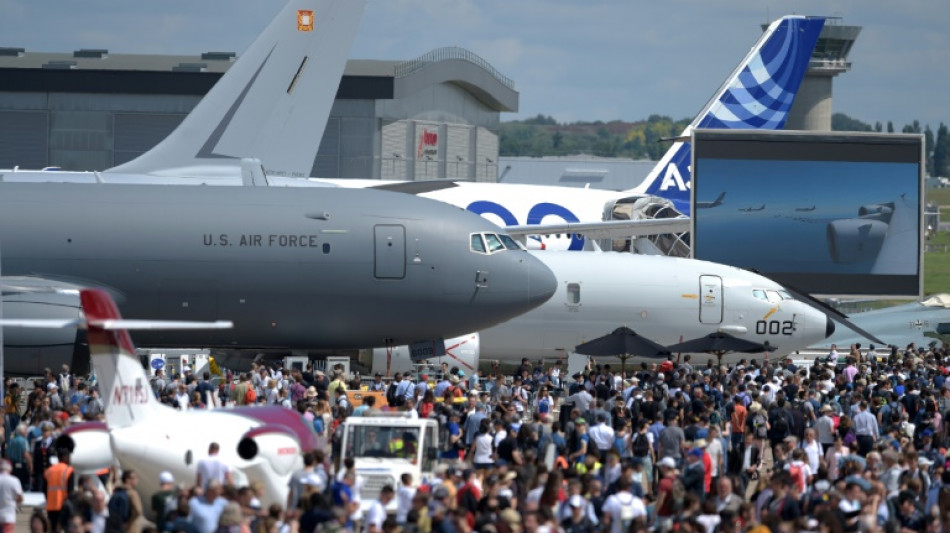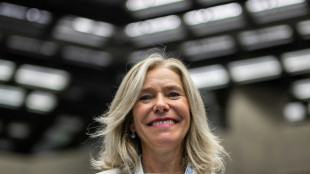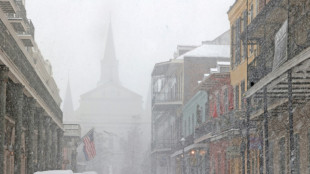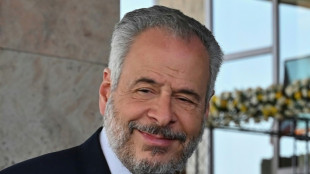

Paris Air Show returns with climate, defence in focus
After a Covid-induced break, the Paris Air Show returns next week with the aerospace industry bouncing back from the pandemic but facing pressure to slash its carbon footprint.
Organisers are promoting the biennial event as the "recovery airshow" after the coronavirus ravaged the sector and forced the gathering's cancellation in 2021.
The aerospace industry is flocking back to Le Bourget airport on the outskirts of Paris with a spring in its step, as aircraft makers field hundreds of orders and airlines brace for a near-record number of passengers this year.
Russia's war in Ukraine has also prompted countries to step up their military spending, which could benefit aerospace defence firms.
The airshow is a chance for companies to show off their wares, announce deals and do more business, with some 2,500 firms showing off their latest planes, drones, helicopters and prototypes such as flying taxis.
With some 125,000 square meters of exhibition space -- the equivalent of nearly 18 soccer fields -- around 320,000 visitors are expected during the week-long event starting Monday.
It "remains an unmissable event for fans and the curious" about the aviation industry, said Airbus chief executive Guillaume Faury, who heads the French aerospace industry association GIFAS.
- Defence spending -
Along with the Farnborough airshow in England which takes place in even numbered years, Le Bourget is a key sales event for the civilian and defence industries.
Airbus and its rival Boeing jostle to outdo one another in announcing orders for aircraft running in the billions of dollars.
At least 158 planes, helicopters and drones will be on display, from the latest long-haul commercial jets to military aircraft dating from WWII to the F-35, the latest US stealth fighter.
The United States will have a strong presence at the airshow with 425 exhibitors just as the conflict in Ukraine has renewed interest in acquisition of military equipment.
Firms from 46 other nations will be present, but not Russia over its invasion of Ukraine.
China, which lifted Covid restrictions only at the beginning of this year, will also be present.
However, China is not bringing along its first homegrown medium-haul passenger jet, the C919, which it hopes will compete with the Airbus A320neo and Boeing 737 MAX.
- Flying taxis -
The airshow also hopes to open a window into the future as projects for flying taxis and other vertical takeoff aircraft abound.
Several prototypes will be on display as part of a "Paris Air Mobility" exhibition that will showcase the latest innovations that developers hope will change how people travel.
Even more space will be dedicated to innovations aimed at helping the aviation industry reduce emissions from its operations.
Air travel accounts for nearly three percent of global CO2 emissions but does so while serving only a small minority of the world population.
With the industry targeting net zero emissions by mid-century, firms are turbocharging efforts to develop the technologies necessary to get there in what is likely to be a long and costly transition.
Efforts are initially to focus on sustainable aviation fuels (SAF), which are made from different sources such as municipal waste, leftovers from the agricultural and forestry industry, crops and plants, and even hydrogen.
Firms are also working to develop battery- and hydrogen-powered aircraft.
Ch.Buidheach--NG



